The Benefits of Word-of-Mouth Marketing: A Guide for Businesses
As a business owner, you know the value of having a loyal customer base. These customers are not only repeat buyers but they are also your brand ambassadors, spreading the word about your products and services to their network. This kind of customer advocacy is one of the huge benefits of word-of-mouth marketing. If harnessed correctly, it can be a significant driver of growth through effective marketing strategies like referral and affiliate marketing programs.
In this article, we will explore the top benefits of word-of-mouth marketing and how it can help your business grow. Plus, we’ll take you through how to automate your word-of-mouth marketing using referral software.
Table of Contents
What is Word of Mouth Marketing?
Word-of-mouth marketing (sometimes abbreviated to “wom marketing”) is all about creating positive conversations about your brand. It aims to generate buzz by encouraging people to share their experiences and make purchase decisions based on word-of-mouth recommendations. It’s a form of organic marketing that relies on the recommendations and endorsements of happy customers and loyal fans. There is no better lead you can get than one that is referred by a trusted source!
Word-of-mouth advertising has been around for centuries and it is still one of the most powerful tools businesses can use to generate leads and build their brand. And, with the rise of social media, it has become easier than ever before to reach a wider audience through the personal recommendations and endorsements of happy customers.
Try it for yourself – enter your website in the free tool below to build a referral program for your business in one click
What Are The Benefits of Word-of-Mouth Marketing?

Word-of-mouth marketing should be a key focus for any business, as it can lead to a range of benefits that can help to boost growth and revenue. Word-of-mouth marketing is something most brands are achieving on a small scale organically but can be greatly accelerated by launching a referral program.
Influencer marketing, which leverages influential individuals to promote products or brands, is another effective method brands use to enhance their word-of-mouth marketing strategies.
Exceeding customer expectations can further enhance word-of-mouth marketing by creating memorable experiences that customers are eager to share.
Here are the major benefits of word of mouth advertising:
Benefit One: Reduce Your Marketing Costs
This type of marketing is incredibly cost-effective, as it relies on the recommendations and endorsements of loyal fans, rather than a large marketing budget being spent on Google or Facebook ads.
By employing various marketing techniques, companies can save money on advertising costs, while still reaching new audiences through the organic buzz created by their satisfied consumers. Your customers can influence their friends, and therefore make them more likely to buy from you in the future.
Benefit Two: Improve Your Ad Targeting
Word-of-mouth marketing is highly targeted, as it is based on the recommendations of trusted sources. This means that leads generated through word of mouth are often of higher quality, as they are more likely to convert into paying customers.
Additionally, word-of-mouth advertising can help to build trust and credibility for a brand, as consumers trust the recommendations of friends and family members way more than they trust advertising messages. This can be particularly valuable for businesses in competitive industries, as it can help them to stand out and differentiate themselves from their competitors.
Benefit Three: Increase Your Volume of Incoming Leads
Another significant benefit of word-of-mouth marketing is its potential to increase the volume of incoming leads for your business. Viral marketing, which relies on word-of-mouth and spreads awareness through pre-existing social networks, can amplify this effect. When customers share their positive experiences with others, it can create a ripple effect that leads to more people becoming interested in your product or service and greater brand recognition in general.
By launching a referral program, you can vastly increase the number of referrals because you’re providing an incentive to motivate and encourage word of mouth. This means that businesses can benefit from a steady stream of inbound leads without having to invest heavily in advertising or other marketing channels.
Furthermore, word-of-mouth marketing can help businesses penetrate deeper into their target markets. For example, if your business caters primarily to a certain age group or geographic region, word-of-mouth marketing can help you increase visibility and trust with that same demographic.
Benefit Four: It’s Risk-Free
If your referral program is set up correctly, you should only be paying a reward for a word of mouth recommendation once that new customer converts. This means a lead was referred to you and that lead took the necessary actions required for it to convert into a paying customer.
Your community and customers can tell their friends about you but only if those friends actually buy would you pay out a reward.
83% of consumers are willing to refer after a positive experience—yet only 29% actually do.
As is clear from these four benefits, there’s a huge opportunity for businesses to leverage the brand loyalty they’ve built over time. As a business, you can reduce your marketing costs, improve your ad targeting, get more leads, and do all of this pretty much risk-free.
What Techniques Can Businesses Use To Encourage Word-of-Mouth Advertising?
Word-of-mouth advertising can be a powerful tool for businesses looking to generate more leads and build their brand.
There are specific techniques you can apply in your business to improve your word-of-mouth marketing strategy. Try to implement these tactics if you want to actively focus on getting more referrals.
1. Provide Excellent Customer Service

The first and most effective way to encourage word-of-mouth marketing is to provide exceptional customer service. By providing excellent customer service, you create satisfied customers who are more likely to recommend your business to their friends and family.
If you already work hard to keep up your brand image, you won’t have to do much to implement this technique. Exceeding customer expectations by going above and beyond, such as creating custom items or resolving complaints effectively, can significantly boost your referrals.
2. Offer Rewards and Incentives
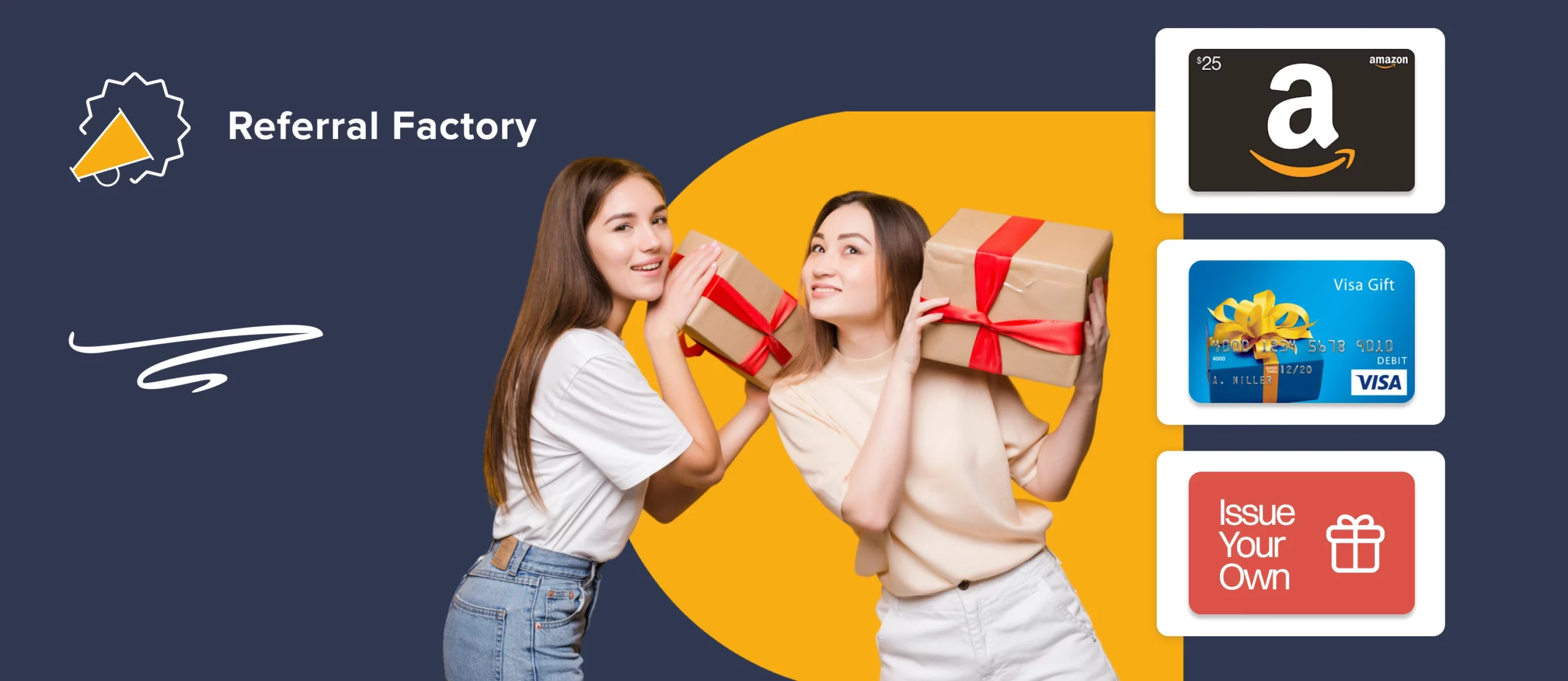
If you have a formal referral program, you’ll be able to offer rewards and incentives in a largely automated way. Offering incentives such as discounts, free trials, and even cash (finders fee’s) can motivate people to talk about your business.
3. Make It Easy For People To Refer
Let’s face it, time is money! So, offer people a user-friendly mechanism to refer to their friends. One highly effective approach is issuing each referrer with an exclusive referral link or directing them to a dedicated registration page where they can register to refer friends (this is called an opt-in referral program).
Subsequently, upon acquiring their referral links, people should be afforded effortless means to disseminate them via social media platforms (Facebook, Twitter, LinkedIn) or direct messaging channels (Whats App, Telegram, Email).
Leveraging user-generated content can further enhance this by showcasing authentic and trustworthy experiences shared by customers.
4. Promote Your Referral Program
If you want people to actively refer, they have to know how your referral scheme works. Make sure you communicate clearly what people can get for referring their friends to your business, and what the benefit is for the friend they refer to.
The simplest way to do this is by launching a formal referral program. Once it’s launched, you’ll need to start thinking about how to encourage your loyal customers to refer to their family and friends.
For example, you can promote your referral program inside your product, on your website, or on social media sites.
One of the most effective ways to advertise your referral program is by sending a direct mail to your customers and database, announcing that you’re now offering rewards to anyone who wants to generate positive word of mouth about your business.
5. Track and Monitor Referrals
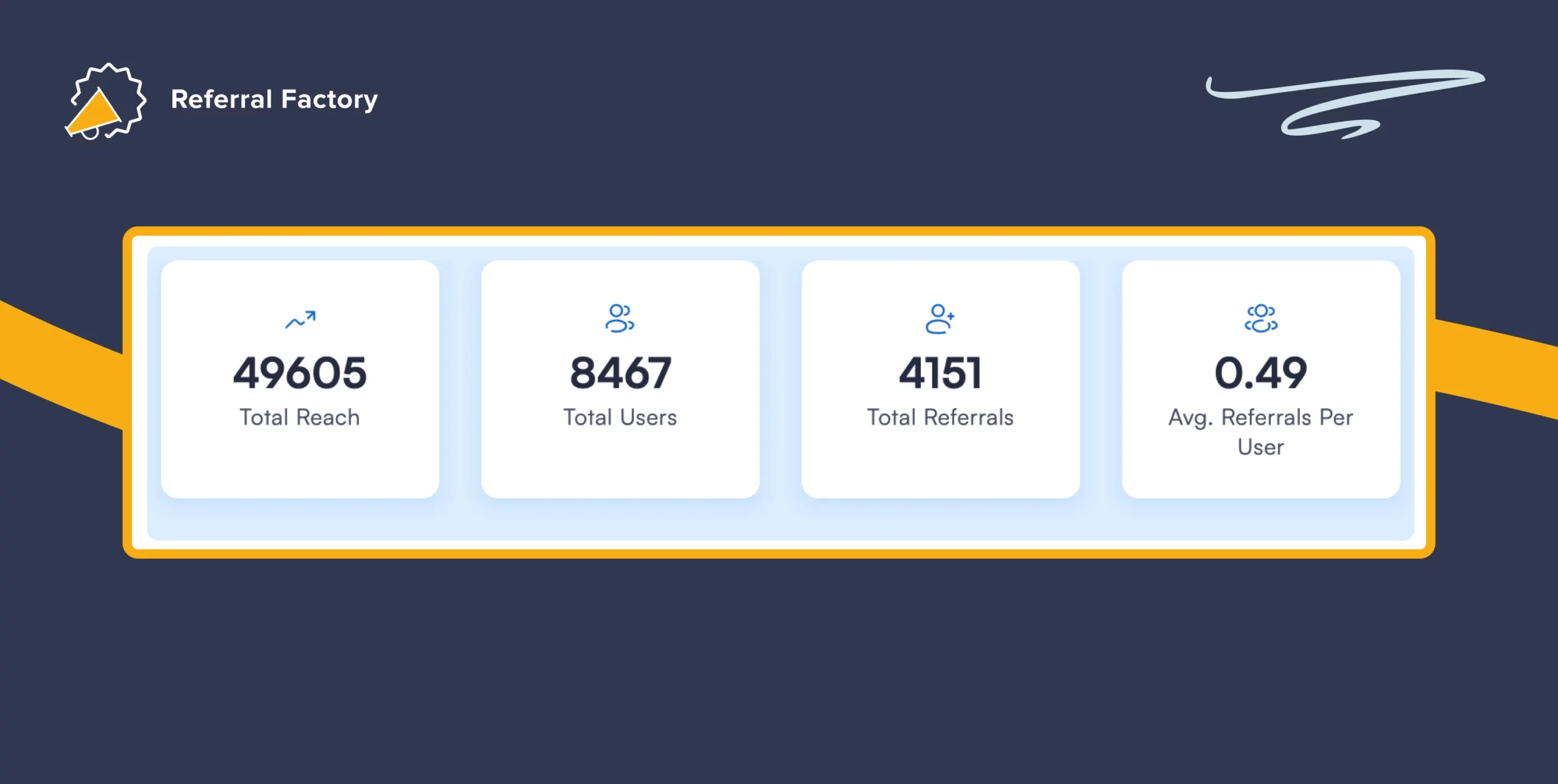
Word of mouth should ultimately lead to your business generating more referrals. Be sure to track those referred leads accurately so that you can thank and reward the people sending new business your way.
You also should ensure that the friends they refer have an excellent onboarding experience, as this builds trust with both the person referring and the person invited.
Some techniques you can use to track your referrals are monitoring social media and tracking the reach and referrals generated by each participant’s referral link (you would need referral software to do this). You should also track the conversion rate of all the referred leads that you generate so that you can understand the quality of leads being generated by your referral program.
It will also help identify your most loyal brand advocates who spread the word about your business on a regular basis — think of these people as a loyal fanbase that you can nurture over time! If you know who these fans are, you could build personal relationships with them to further accelerate their word-of-mouth spread.
What Strategies Can Be Used to Track the Success of Word-of-Mouth Marketing?
Word-of-mouth marketing has become an integral part of the word of mouth strategy for many businesses. While it is an effective way to generate more leads and build brand awareness, it can be difficult to track its success if you are new to referral marketing.
In this section, we will discuss some strategies that businesses can use to track the success of their word-of-mouth marketing campaigns.
1. Monitor Social Media Posts
Social media is a great platform for businesses to engage with their audience and track their brand mentions. By monitoring social media conversations, businesses can identify which products or services are being talked about and what customers are saying about them. You can also track how often people are sharing their referral links across social media, simply by running a public search like this 👇
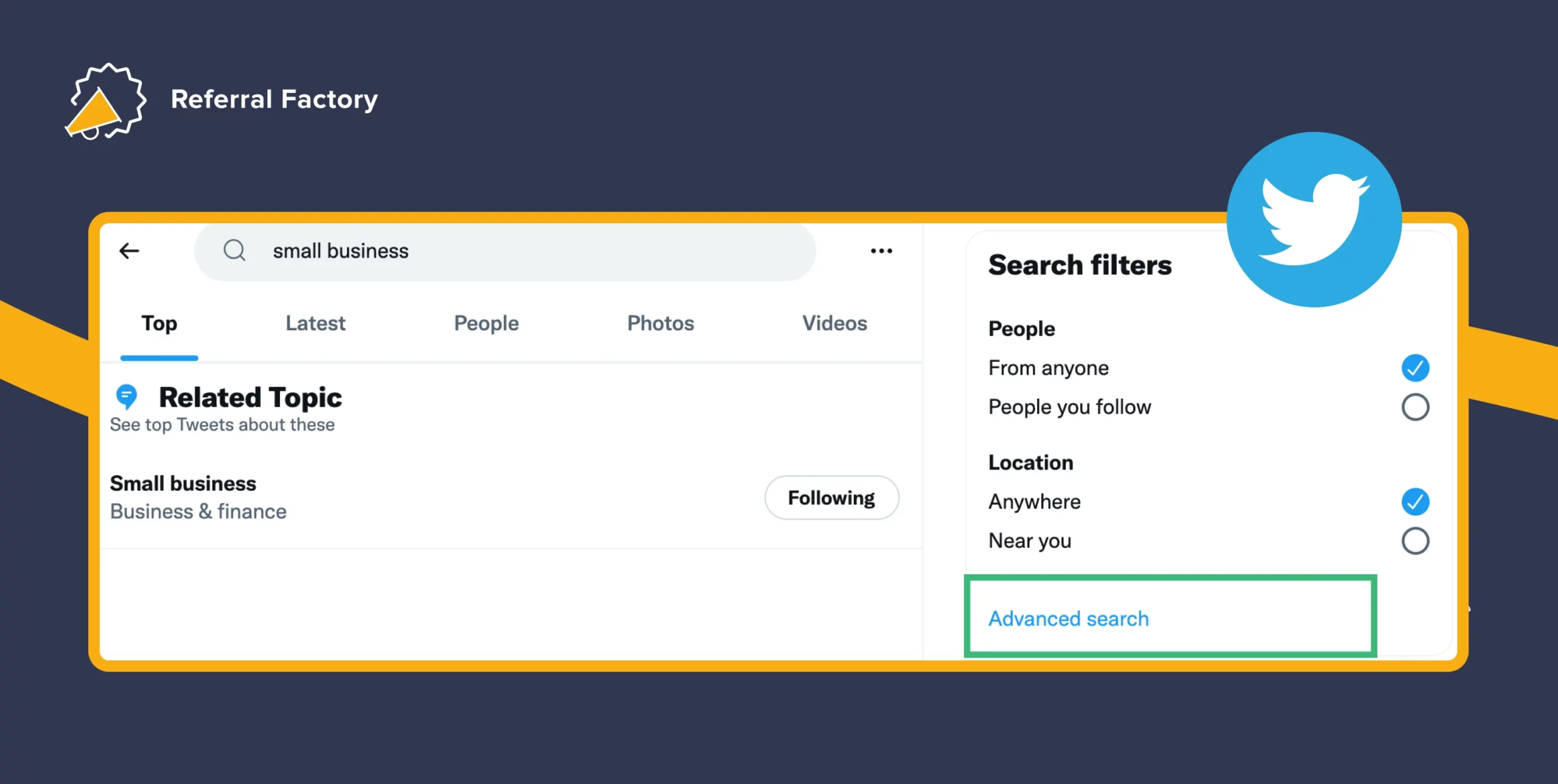
By tracking what people are saying about your brand, you can identify any areas where you need to improve your referral program. Do you maybe need to improve your incentives? Or do you need to do more work to promote your referral program so people don’t forget about it? Either way, tracking your word-of-mouth campaigns is a technique you can’t forget.
Additionally, monitoring social media helps in identifying negative word-of-mouth marketing, which can rapidly spread and potentially undermine brand perception and consumer attitudes.
2. Use Referral Tracking Software
Referral tracking software is a great tool for businesses looking to track the success of their word-of-mouth marketing. This software allows businesses to track the referrals they receive through their official referral program, and then easily identify who referred whom.
By using this data, businesses can identify the most valuable referrers, and learn more about what motivates them to refer. You can also stay on top of the ROI being generated by your referral program so that you know the impact it’s having on your overall growth strategy.
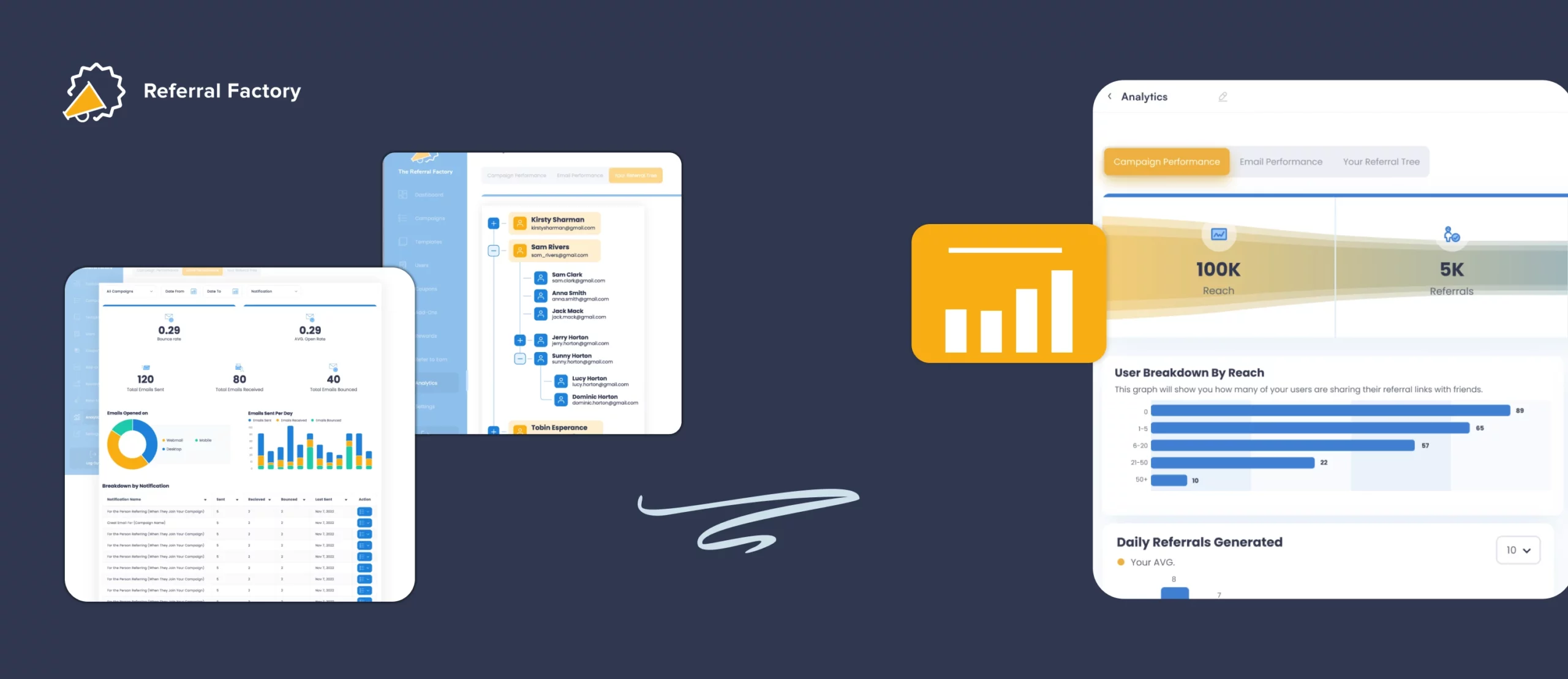
Try our referral tracking software – we’ll build a referral porgram for your business in seconds
3. Run Surveys
Running surveys is an effective way for businesses to collect feedback from their customers and track the success of their word-of-mouth marketing. Surveys can be used to gather information on what products or services your customers feel comfortable recommending, what they would change about your referral program, and also what your new referred customers think about business. By analyzing the results of these surveys, your business can identify areas that need improvement, and you can adjust your customer service and or marketing strategy accordingly.

4. Track Brand Searches on Google
The more people talk about your brand, the more you will see searches for your brand’s name on Google, Bard, and ChatGTP increase. This is a simple method that you can use to measure how much “talkability” there is around your business online and in the real world.
Every time someone tells their friend or audience about your business, it acts as a trusted advertisement for your brand. You’ll then see that organic searches of your brand’s name increase month over month on Google.

Word-of-mouth marketing can lead to an increase in brand searches, social media mentions, as well as sales – because when customers refer their friends and family to your business, they are more likely to actually follow through and make a purchase. This is because referred leads come with built-in social proof. If someone’s friend already buys from you that’s a great sign that your brand can be trusted!
92% of people trust recommendations from their friends and family members, and 77% of people are more likely to buy a product when it is recommended by someone they know.
What Are Some Word of Mouth Marketing Examples?
Below we cover the best examples, but we also list some cool referral program ideas here.
Dropbox
The most famous example of word-of-mouth marketing is Dropbox.
Dropbox is an online storage platform, which means if you want more space, you’ll need to pay more — unless you refer a friend! This is how their referral program worked: 500MB of free storage for every friend you refer! Your friend also gets 500MB of free storage too. This is called a double-sided referral program (it’s a bit more costly but better has a better ROI in the long run). The result? 3900% customer growth in 15 months. Unbelievable!
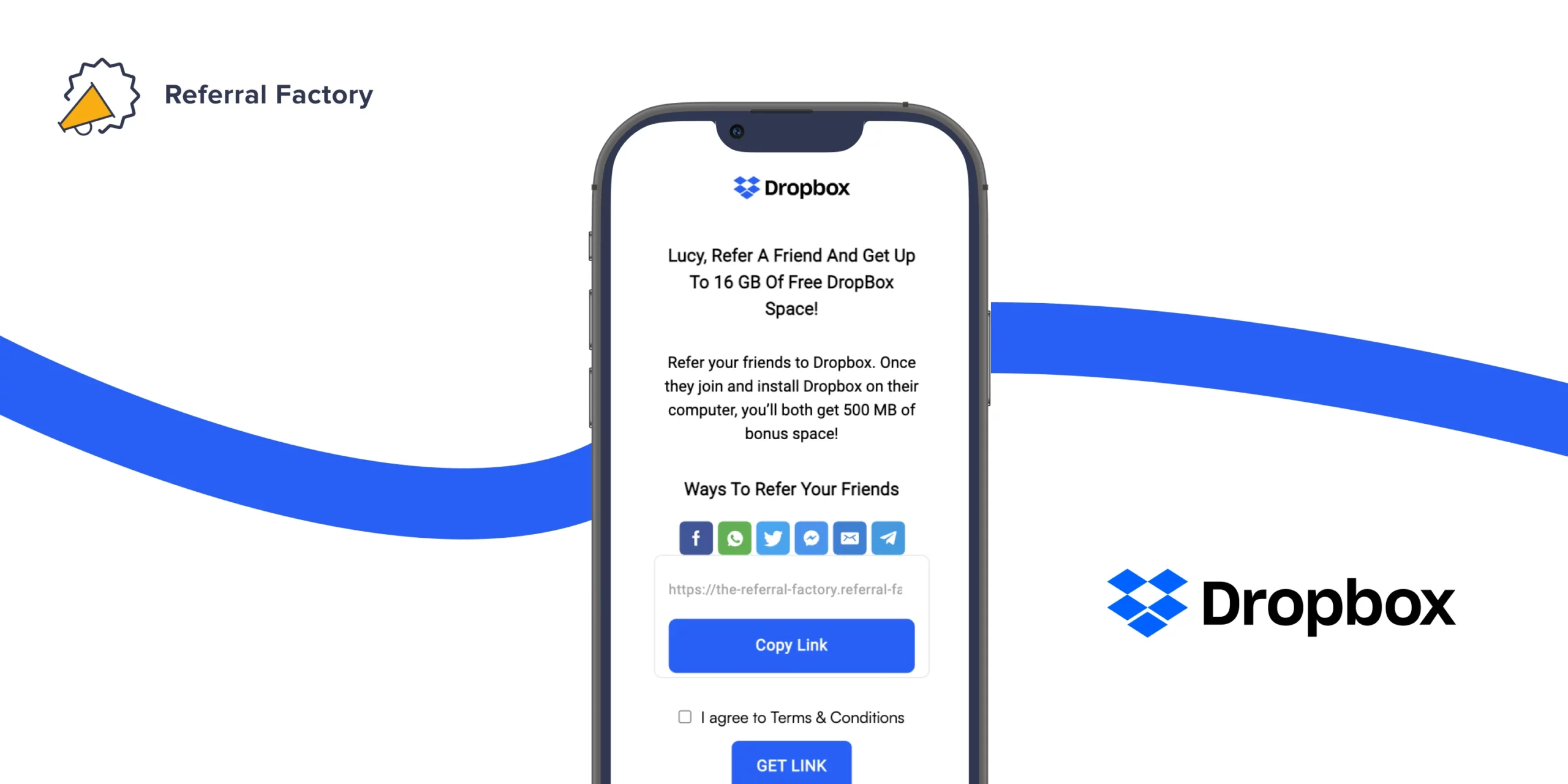
Paypal
Paypal is another powerful example of real-world marketing that worked. When Paypal started back in the early 2000s, they simply gave people $20 for opening a PayPal account. And when the new account holder referred a friend, they got another $20.
Originally, they launched their referral program with a double sided incentive — $20 to the person referring and $20 to the person invited. Obviously, this got pretty expensive fast as they saw rapid growth, so Paypal reduced the value to $5 and then scaled their referral program from there.
The result? Paypal grew 10% every single day during the launch of their program, ultimately growing their user base from one million to five million in just a few months!
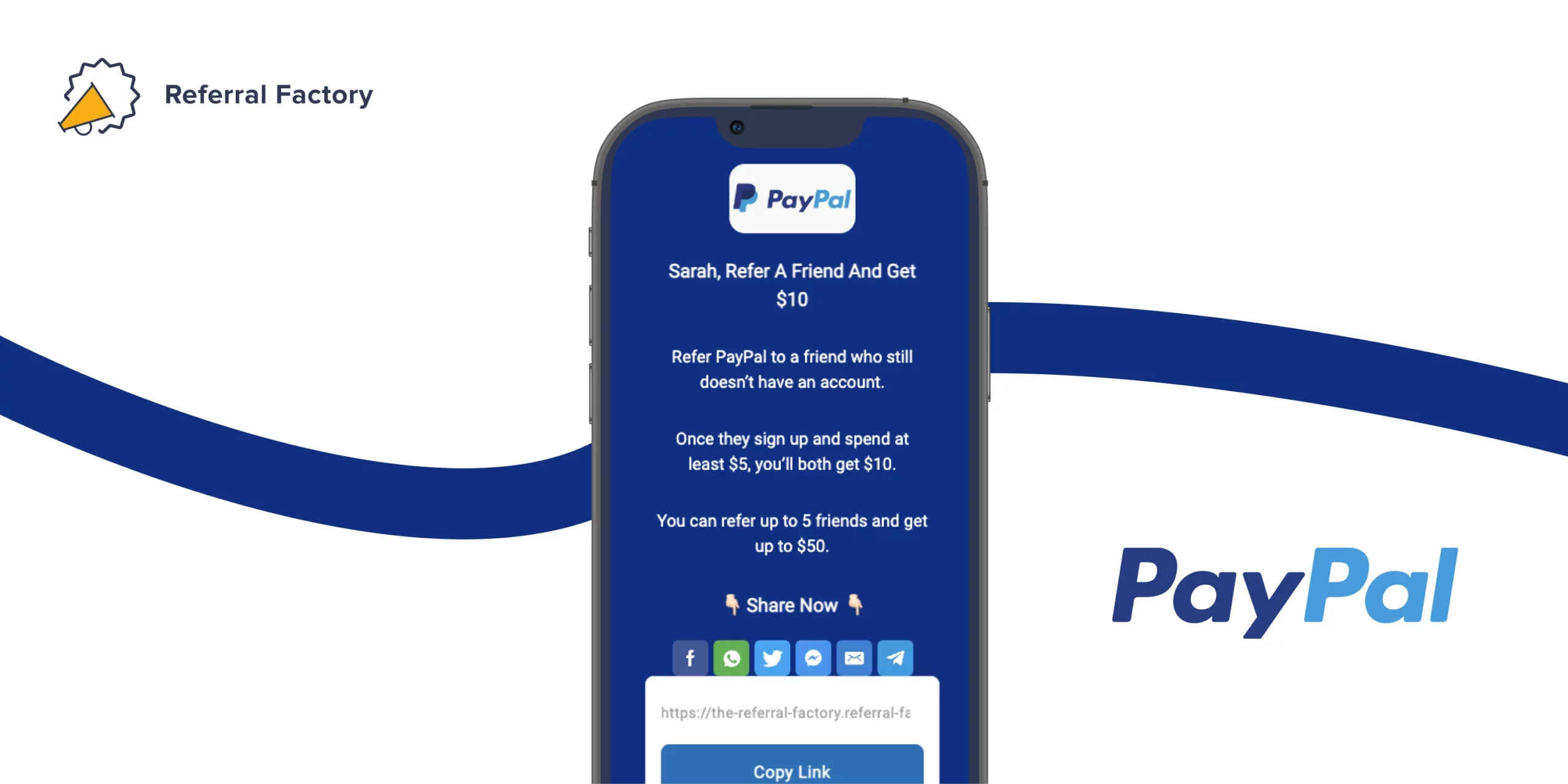
There are also examples of smaller businesses using word of mouth to grow. Word-of-mouth marketing works in most industries these days because technology makes it so easy for customers to share their referral links with friends and spread the word.
Optimus (Education Industry)
Refer a friend and get a discount on your future course, the friend you refer will get a discount too, it’s a win-win! Education is the perfect industry for word of mouth because people with similar interests usually flock together and love talking about those interests.
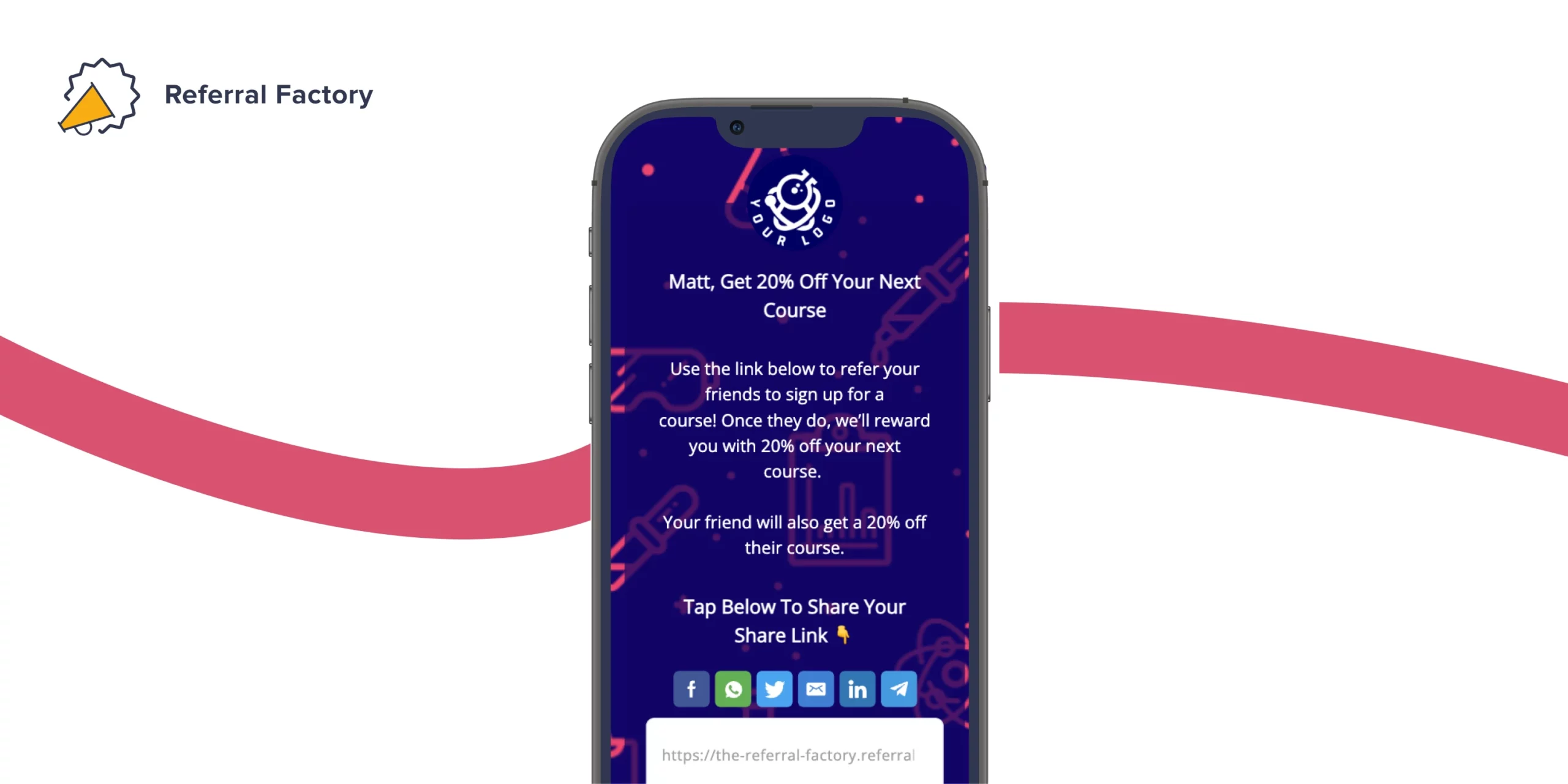
Angel’s Cafe (Food and Beverage Industry)
A classic invite-your-friends campaign offering a voucher to your friend if they try Angel’s Home Cooking Cafe. This campaign performed extremely well for one simple reason… People love to give their friends free food!
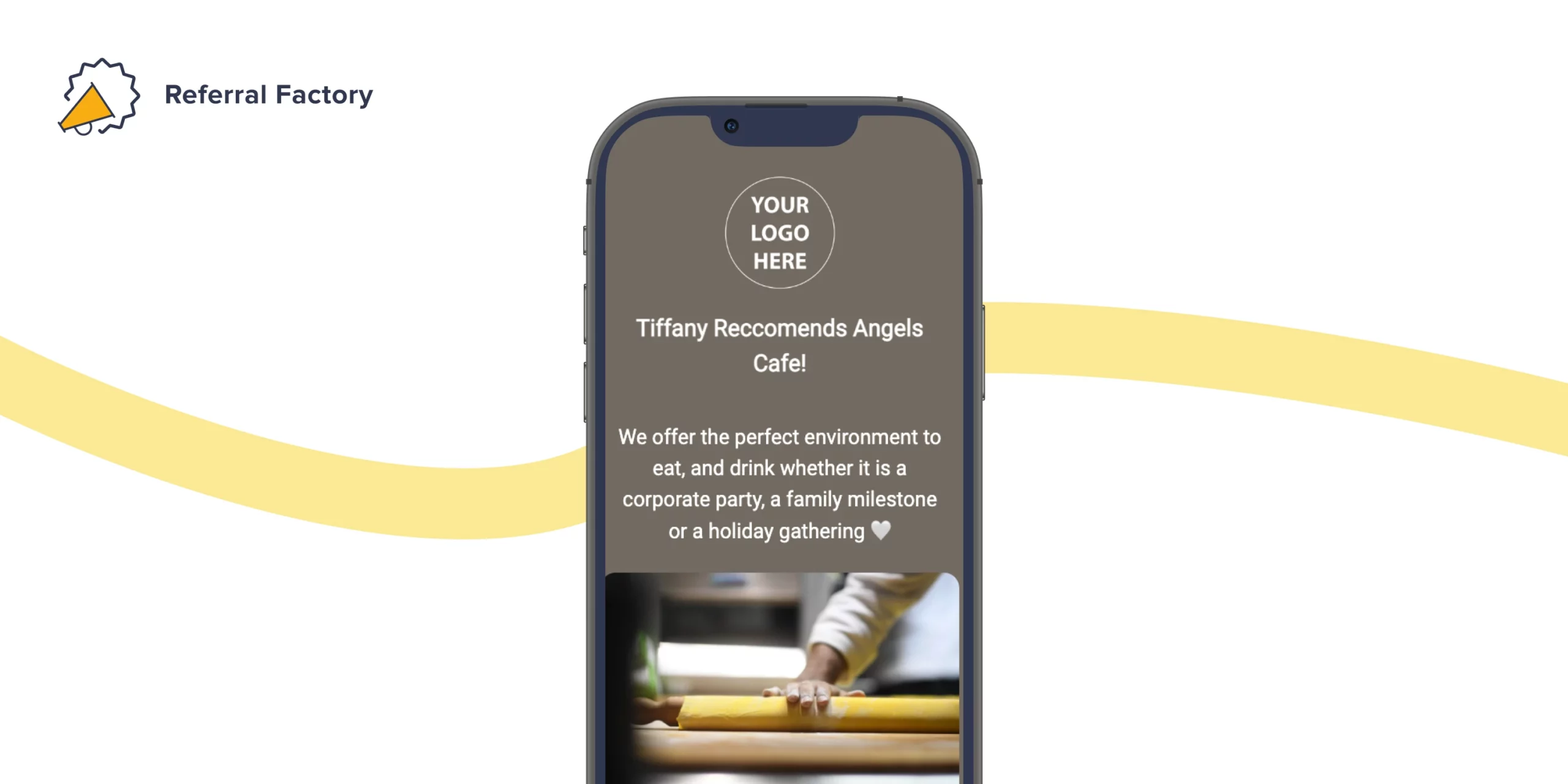
Ourbus (Travel Industry)
A classic give-and-get campaign. Share your referral link with a friend and you’ll each earn $15 towards a bus trip in the future! We all know that people already love to share their love of travel, so this is a great niche to actively find ways to increase word-of-mouth spread.
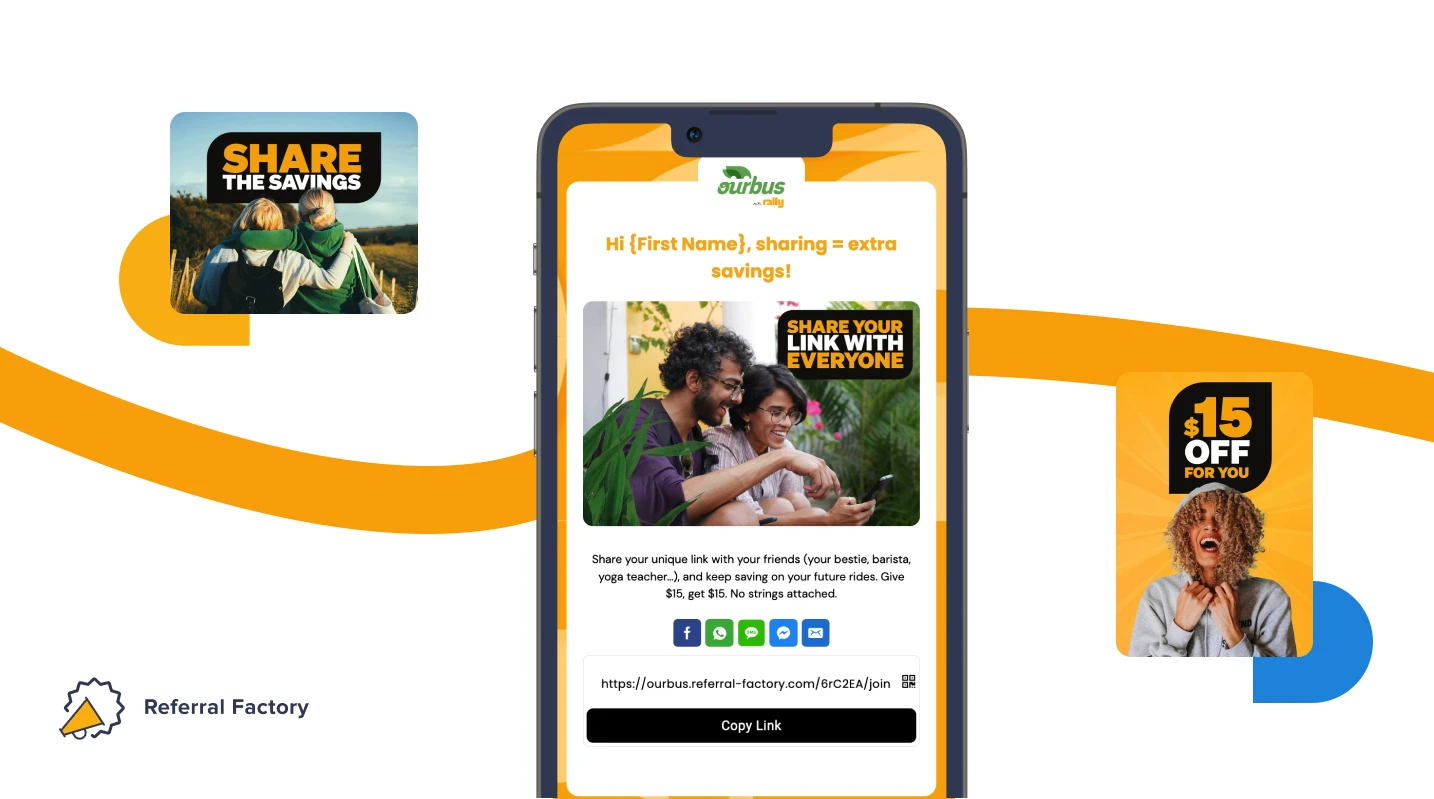
Radius (Insurance Industry)
A give and get that was simple and powerful. In times that are economically tough (like 2023 when this program was launched), people in the UK needed basics more than luxuries. This is why Radius used a reward and an incentive that would encourage their customers with what they really needed – fuel. Give £50 of fuel, get £50 of fuel.
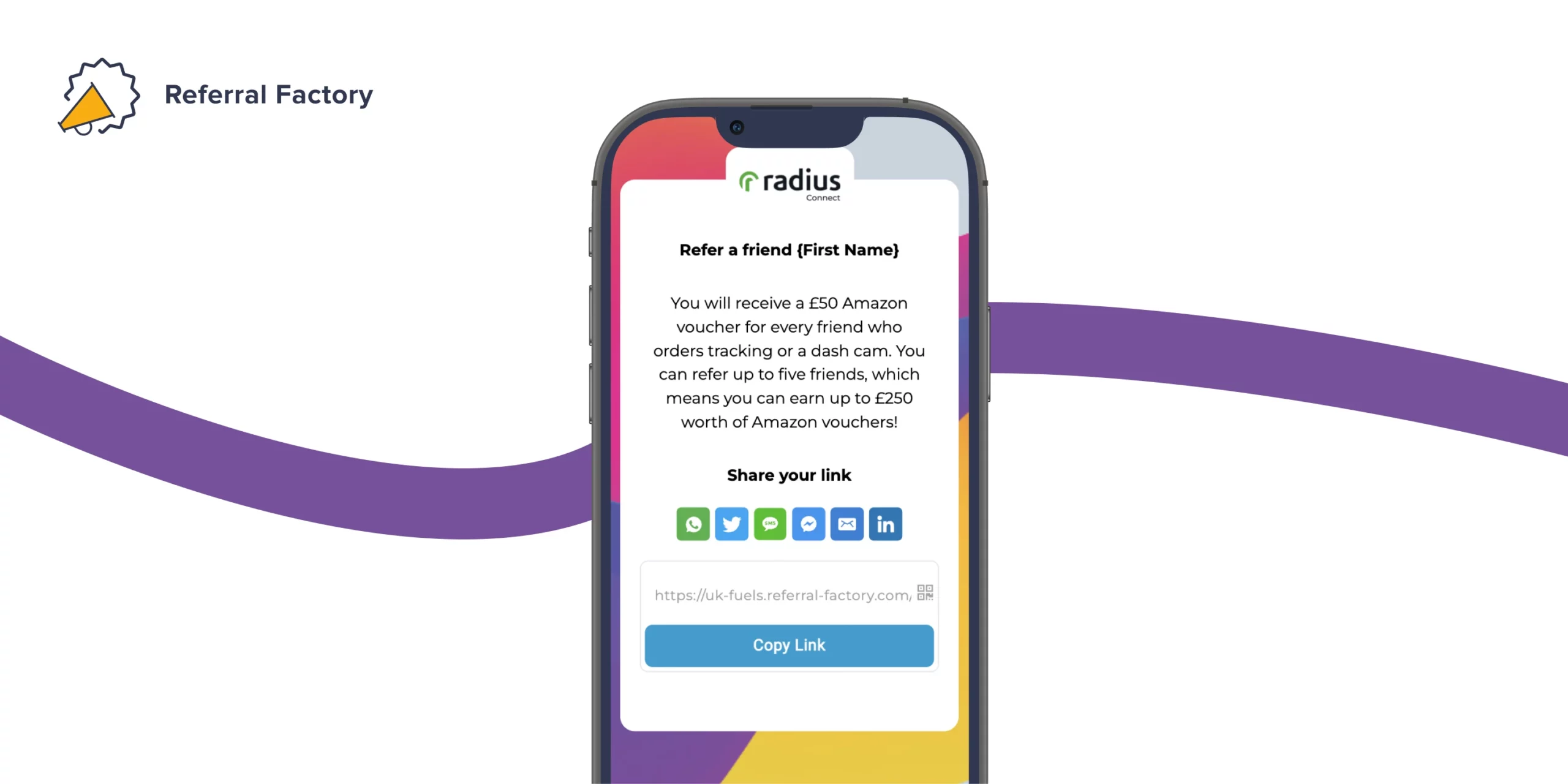
iKhokha (B2B SaaS Industry)
Business owners received a cashback reward for referring other entrepreneurs to switch to iKhoKha payment processing software – and the business they refer received a 10% discount on their card machine plus a chance to win additional funding to grow their business.This is a great example of B2B Referral Program.
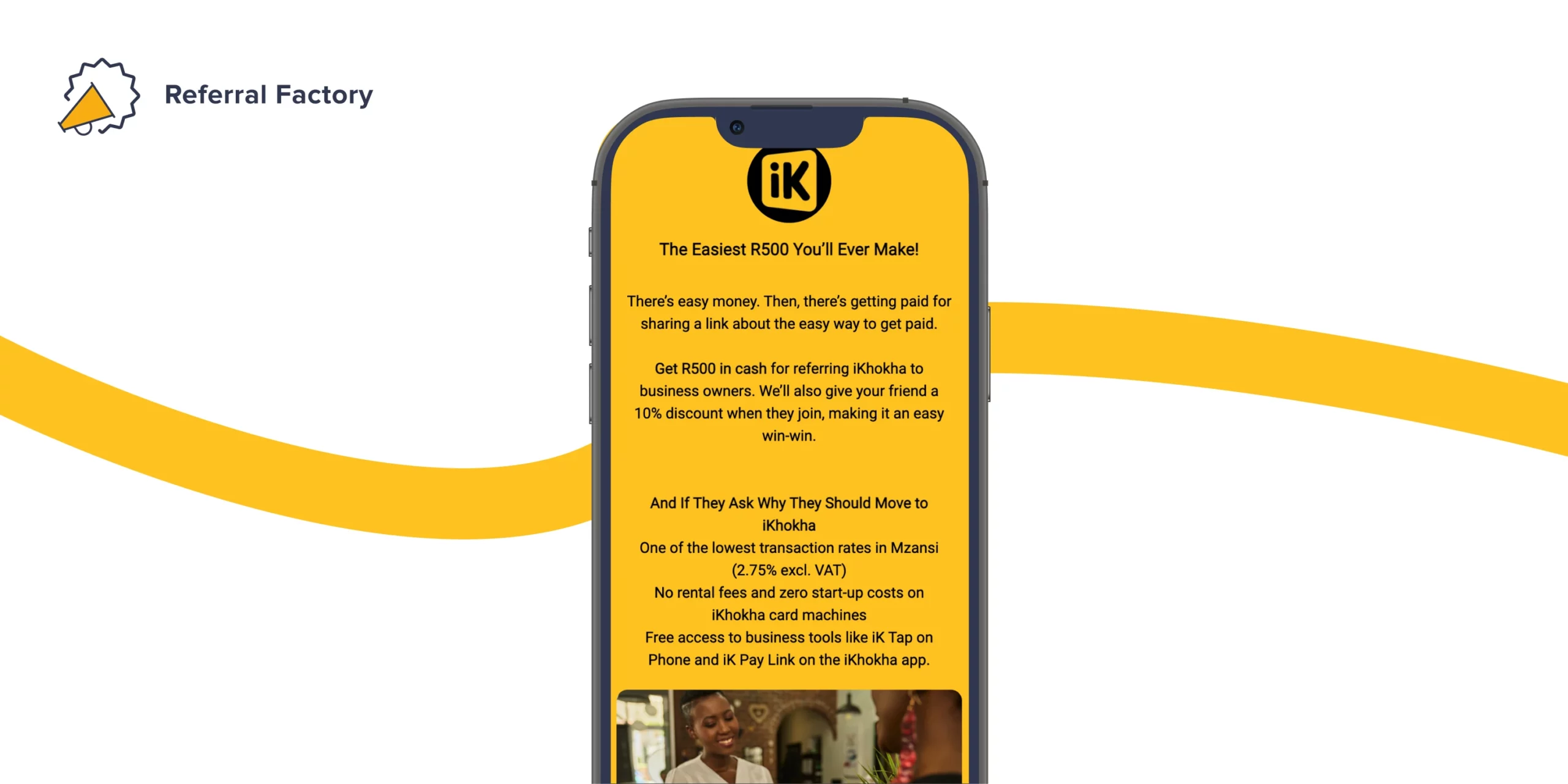
Auspac Solar (Solar Industry)
A big reward for a valuable referral! This program offered $250 for every friend you refer who installs solar panels supplied by Auspac. If you’re going green to save the planet, it makes sense that you’d want your friends to follow suit too!
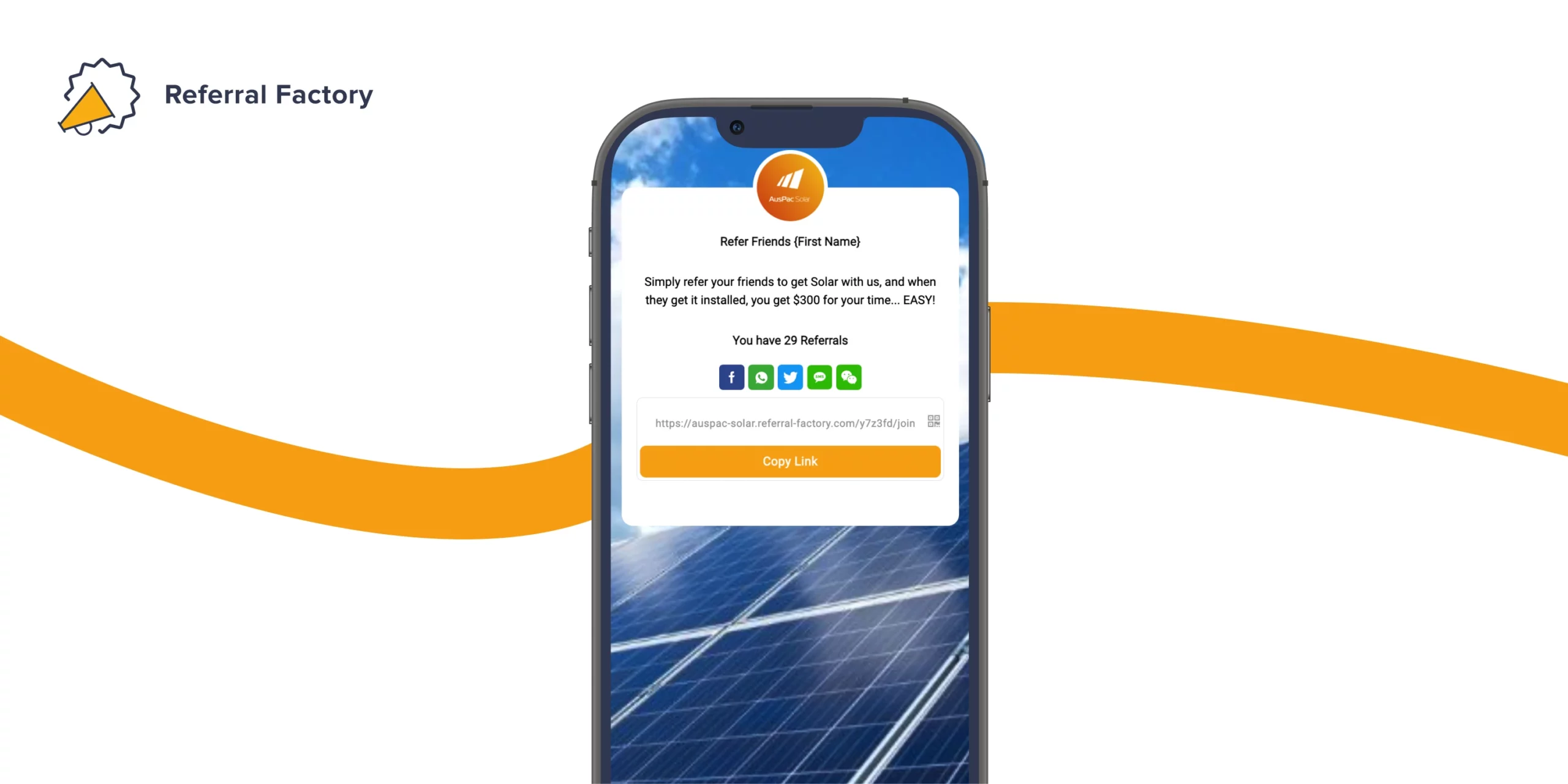
How Does Word-of-Mouth Marketing Impact Customer Loyalty?

Word-of-mouth marketing has a significant impact on customer loyalty, as it is one of the most effective ways to build trust and establish credibility with potential customers.
Referred customers have a 16% higher lifetime value than non-referred customers.— Wharton School Of Business
When customers receive a positive recommendation from someone they know and trust, they are more likely to try out a product or service, which can lead to increased sales and more loyal customers for you. Additionally, when customers have a positive experience with a brand, they are more likely to share their experience with others, which can lead to even more word-of-mouth marketing and referrals!
Word-of-mouth marketing also provides businesses with valuable feedback and insights into their products and services. When customers share their experiences and opinions, businesses can use this information to improve their offerings, address any issues, and ultimately provide a better customer experience going forward.
Overall, word-of-mouth marketing can have a significant impact on customer loyalty by building trust and credibility, increasing sales and customer retention, and providing valuable feedback and insights for businesses. Implementing an effective mouth marketing strategy can further enhance these benefits.
Want to capitalize on word-of-mouth marketing for your business? Try our free Referral Link Generator
Conclusion
In conclusion, word-of-mouth marketing should be a key part of any business’s marketing strategy in 2024. By harnessing the power of positive customer recommendations and endorsements, businesses can generate more leads, build their brand, and save money on advertising costs.
It’s a no-brainer!
If you’re ready to kick start your journey with referral marketing, you can read our full comprehensive guide on the topic here 👇
Referral Marketing 101: A Comprehensive Guide for Business Owners




